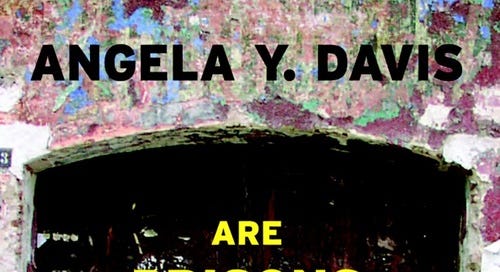Black Feminist Book Club #2: Are Prisons Obsolete? By Angela Y. Davis
An abolitionist text that everyone should read.
In this critical text, Angela Y. Davis provides a positive and hopeful outlook on the possibility that we might one day be able to see crime and punishment as not inherently tethered to one another. In this small book, published in 2003, she helps us understand that prisons and the creation of the prison industrial complex (PIC) is not actually rooted in mitigating a crime epidemic, instead it is rooted in racism, capitalism, and anti-Blackness.
Moreover, if we are to imagine a world without prisons, we will first have to imagine a world where we do not first see prisons as inherent to our environment and permanent. Because prisons did not always exist, they are neither necessary nor essential to society. Moving from that place, we will have to assess the relationships that have been borne through a long capitalistic tradition of literally monetizing everything including our bodies and labor.
Davis's core argument is that the focus on prison reform makes it seem as though prisons are innate to our lived environment. Moreover, public assumptions and buy-in around the necessity of prisons and their inevitability make many Americans essentially take the whole system for granted. It doesn't help that there are romanticized images of prisons in Hollywood movies and television shows. All of these things taken together contribute to what she refers to as a prison industrial complex which is a combination of health Services, construction, food services, and the like which all benefit from the building of new prisons.
Very convincingly, Davis connects slavery to prisonization. She shows how the development of the prison happened directly parallel to the abolishment of slavery and to an increasing need for private corporations to continue to exploit the labor of Black and Indigenous people. Readers should take from the final chapter that there are many alternatives to imagine a world without prisons and that we can do it by simply understanding their prisons have not been the only alternative in the past and are not the only alternative as we move forward.
One of my favorite aspects of this short book is that it makes prison abolition accessible and material. Rather than trade in theoretical scenarios and ideal cases, Davis reminds us that there is an empirical world around us that we have the power to change. Each of us is capable of engaging in work to dismantle the ecosystem of white heteropatriarchal capitalism. It is our responsibility to take that work seriously.
In this book review, I have not only included lecture notes, I have also provided chapter-by-chapter summaries and thought questions for readers interested in digging deeper.
Keep reading with a 7-day free trial
Subscribe to Love Notes to keep reading this post and get 7 days of free access to the full post archives.




